-
Conference Room Auditorium Level -1
- Registration and welcome coffee from 07.30
- Start of the Conference 08.30
- Exhibition open from 08.00 to 19.30
- Seated Lunch: 12.30
- End of Conference: 16.30
Plenary Session
MPLS + SDN + NFV world
AI net Conference
Level 0
AI net Conference
Auditorium Level -1
AI net Conference
Auditorium Level -1
AI net Conference
Auditorium Level -1
 Chairperson
ChairpersonJean-Marc Uzé, Network Data Scientist, AIforNet
Frameworks like Acumos can be used to speed up the deployment of AI models.
Recalling all the problematics that Data Scientist are facing to create or update AI models.
Presenting Acumos and their benefits.

Philippe Dooze, Data Analyst, Orange Labs
Philippe Dooze is graduated from Lille 1 University and holds a Master’s degree in telecommunication. He started working at Orange in 1999 as a project manager on measurement tools of mobile access network for 3 years in Paris. Afterwards, he worked in the French mobile monitoring center during 8 years as the responsible of quality performance and mobile monitoring tools in Lyon. He joined Orange Labs, the Research and Development department of Orange, in Lannion, France, in 2010 as a research engineer. His research interests include mobile VoIP architecture, QoS prediction, Big Data and Machine Learning. Since April 2018 he is fully involved as a project leader in a Linux Foundation Deep Learning project called Acumos”
Resolving performance issues with insights from past and present behaviours.
Preemptive protection, acting before it is too late.
Multi-layer optimization, combining predictive analytics with the power of what-if simulations.
Predictive RAN x-haul, boosting the quality of experience for mobile users.

Niloufar Tayebi, Director, Global Consulting Enterprise & Cloud Services, Ciena
Niloufar Tayebi is Director, Global Consulting Enterprise and Cloud Services, at Ciena. She specializes in managed services and is adept in services strategies, enterprise and wholesale market analysis and business case modeling. Niloufar has more than 20 years of experience in the telecommunications starting her career as a network architecture, has held leading roles in 4G wireless networking and carrier core product marketing and planning. In her role in Ciena she is responsible as a global consultant for helping service providers to create new services and drive new business models leveraging Software Defined Networking (SDN) and Network Function Virtualization (NFV) with Ciena’s Blue Planet network virtualization, orchestration, and management software. Niloufar holds a Master’s degree in Electrical Engineering from University of Ottawa, Canada. She lives in Ottawa, Ontario.
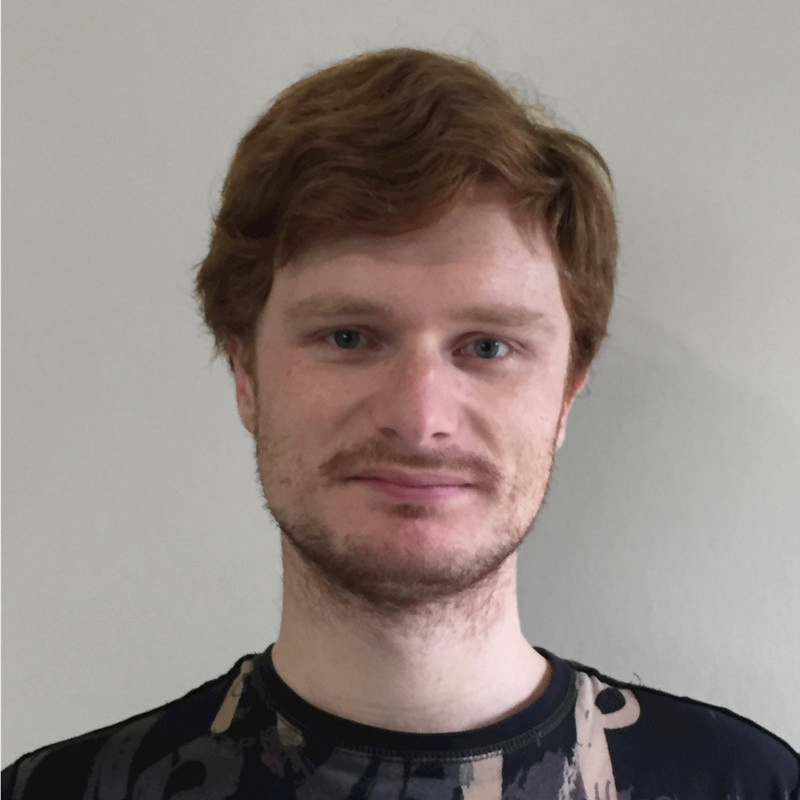
Thomas Delaby, Network Engineer, France‑IX
ML and AI are key components for increasing automation. They require fast access to data, the abstraction of intelligent information from data and rule-based systems. Presenting the ETSI ZSM architecture and the different means it enables to achieve zero-touch automation.

Nurit Sprecher, Vice-Chair of the ETSI ZSM ISG WG
Giving an overview of ML innovation, that has been developed using production data from some of the largest networks in the world, and how these solutions help automate operational intent.
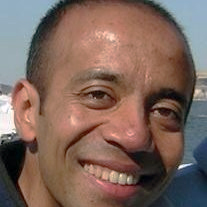
Rahul Aggarwal, Founder & CEO, Augtera Networks
Going through selected aspects of current corporate organization which needs to be changed to make human-AI cooperation comfortable.
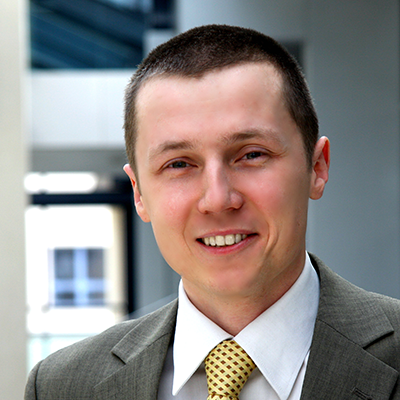
Wojciech Dziunikowski, Head of Product Management, Comarch
Wojciech Dziunikowski is Head of Product Management responsible for Integrated Assurance & Analytics, which is part of our Comarch OSS suite. Comarch’s OSS portfolio showcases products including Customer Experience Management, Service Quality Management, Service Assurance and Fault Management. Day-to-day Wojciech applies his 5-year academic knowledge and his 8-year industry experience to his role, giving him the ability see the telecommunications market and understand specific customer needs in a wider scope. Prior to Comarch, Wojciech had various roles including Analyst and Business Consultant positions for several R&D and implementation projects for the global and European Tier-1 and Tier-2 telecom operators.
Describing a method using AI to analyze some of the visible extracted features and detect patterns generated by specific applications, enabling us to identify key applications using encrypted traffic as input.
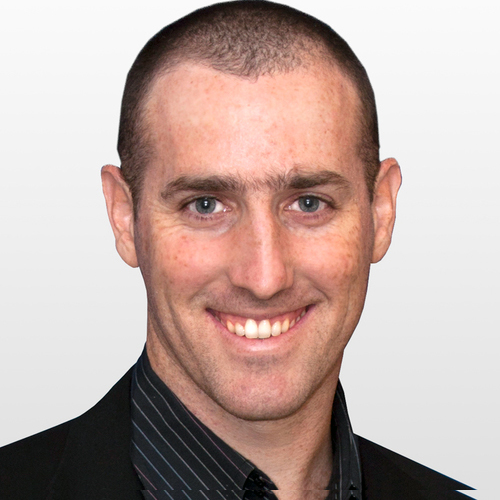
Nir Halachmi, Network Research Product Management, Huawei
Nir Halachmi is leading Network Research Product Management at Huawei European Research Center (ERC). Nir is a subject matter expert for innovative 5G, SDN and NFV solutions, carriers and cloud technologies as well as Service Providers enterprise services and mobile backhaul (LTE 5G and small cells). In his current role, Nir is focusing on innovation around SDN, NFV and 5G specifically focusing on 5G transport network slicing, Network Analytics and Next Generation Video / AR / VR. Nir is also part of the OPNFV Marketing committee, as part of Huawei’s commitment to open source. Nir had spent the past 18 years developing and managing telecommunications products within both the wired and the wireless industries, and has worked across various technologies including Carrier Ethernet, Circuit Emulation, MPLS, IP Networking, Wi-Fi and WiMAX, Cloud and Edge Computing, SDN and NFV. Nir holds a Master's Degree in Computer Science from the Inter-Disciplinary Center (IDC) in Israel.
Walking through the emerging use of machine-learning techniques in network planning and day-to-day operations.

Benoit Lourdelet, Product Management Director, Extreme Networks
Benoit Lourdelet is a Director of Product Management at Extreme Networks. He reports to the Data Center group. In this position, he helps to identify market opportunities and requirements for Extreme Networks products in the field of Machine Learning powered Network Automation. Benoit has spent more than 15 years fostering the development of IPv6. He also worked for both manufacturers and Service Providers on the development of Internet Exchanges and International backbones.
-
Conference Room Auditorium Level -1
- Exhibition open from 08.00 to 19.30
- End of Conference: 16.30
Proposing the framework of Online Network Optimization (ONO), which seeks to maintain both agile and efficient control over time, using an arsenal of data-driven, adaptive, and AI-based techniques.
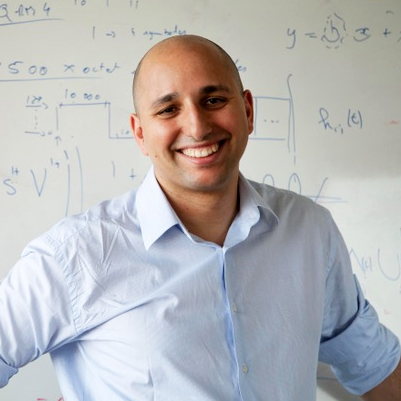
Mérouane Debbah, Director of the Mathematical and Algorithmic Sciences Lab, Huawei
Mérouane Debbah entered the Ecole Normale Supérieure Paris-Saclay (France) in 1996 where he received his M.Sc and Ph.D. degrees respectively. He worked for Motorola Labs (Saclay, France) from 1999-2002 and the Vienna Research Center for Telecommunications (Vienna, Austria) until 2003. From 2003 to 2007, he joined the Mobile Communications department of the Institut Eurecom (Sophia Antipolis, France) as an Assistant Professor. Since 2007, he is a Full Professor at CentraleSupelec (Gif-sur-Yvette, France). From 2007 to 2014, he was the director of the Alcatel-Lucent Chair on Flexible Radio. Since 2014, he is Vice-President of the Huawei France R&D center and director of the Mathematical and Algorithmic Sciences Lab. His research interests lie in fundamental mathematics, algorithms, statistics, information & communication sciences research. He is an Associate Editor in Chief of the journal Random Matrix: Theory and Applications and was an associate and senior area editor for IEEE Transactions on Signal Processing respectively in 2011-2013 and 2013-2014. Mérouane Debbah is a recipient of the ERC grant MORE (Advanced Mathematical Tools for Complex Network Engineering). He is a IEEE Fellow, a WWRF Fellow and a Membre émérite SEE. He has managed 8 EU projects and more than 24 national and international projects. He received 19 best paper awards, among which the 2007 IEEE GLOBECOM best paper award, the Wi-Opt 2009 best paper award, the 2010 Newcom++ best paper award, the WUN CogCom Best Paper 2012 and 2013 Award, the 2014 WCNC best paper award, the 2015 ICC best paper award, the 2015 IEEE Communications Society Leonard G. Abraham Prize, the 2015 IEEE Communications Society Fred W. Ellersick Prize, the 2016 IEEE Communications Society Best Tutorial paper award, the 2016 European Wireless Best Paper Award, the 2017 Eurasip Best Paper Award and the 2018 IEEE Marconi Prize Paper Award as well as the Valuetools 2007, Valuetools 2008, CrownCom2009, Valuetools 2012, SAM 2014 and 2017 IEEE Sweden VT-COM-IT Joint Chapter Best Student paper awards. He is the recipient of the Mario Boella award in 2005, the IEEE Glavieux Prize Award in 2011 and the Qualcomm Innovation Prize Award in 2012.
Anomaly-based IDS (Intrusion Detection System) monitors activities of computer and network systems and classifies them as either normal or anomalous based on heuristics or rules. Artificial neural network can be employed for anomaly-based IDS.
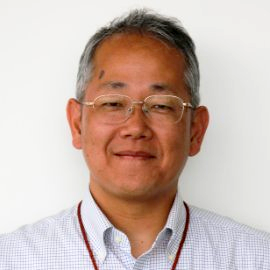
Kohei Shiomoto, Professor, Tokyo City University
Kohei Shiomoto is a Professor, Tokyo City University, where he is engaged in Research and Education in Network Management for the Internet, Mobile, and Cloud. Before joining Tokyo City University as Full Professor, he spent 28 years in NTT laboratories and was engaged in advanced research on SDN/NFV and Network Analytics, Communication Traffic & Service Quality, Traffic Engineering, IP and Optical Networking, (network architecture, IETF standardization, multi-layer traffic engineering), architecture design for high-speed IP/MPLS label switching router, IP router design, routing algorithm, and IETF GMPLS standardization, development of commercial ATM switching systems, research of high-speed networking technologies including ATM traffic control, measurement-based admission control, and ATM switch design. From 1996 to 1997, he was on leave from NTT to join Department of Computer Science and Engineering, Washington University in St. Louis, MO, USA as Visiting Researcher and was engaged in research of high-speed networking technologies including dynamic flow switching and soft-state ATM switching. He received the B.E., M.E., and Ph.D degrees in information and computer sciences from Osaka University, Osaka in 1987 1989, and 1998, respectively.
Predicting the barriers to accepting emerging AI technology and outlining an implementation strategy for stepwise building of confidence. Use cases show how value creation catalyzes the acceptance process.
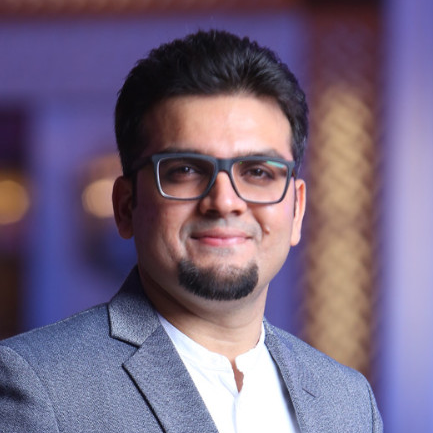
Danish Rafique, Senior Manager AI & ML, ADVA Optical Networking
Dr. Danish Rafique is a Senior Manager AI & ML at ADVA Optical Networking. He focuses on the strategic evolution of telecom networks, marrying extensive domain knowledge with a focus on cutting-edge software-based-service opportunities. He is a machine-learning enthusiast, eager to promote and engage in discourse about design, architecture and cognitive management of cloud infrastructure.
Outlining the mappings, discussing the methodology involved in creating them, and providing examples of known behaviors that taken together, may enable fully automated remediation and optimization systems. And for those interested in working directly on AI capabilities, showing how to access fully documented training data sets.

Drew Pletcher, Principal Engineer, Cisco